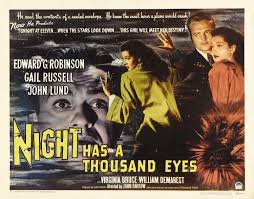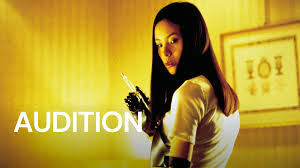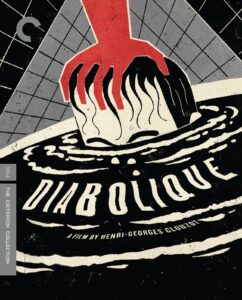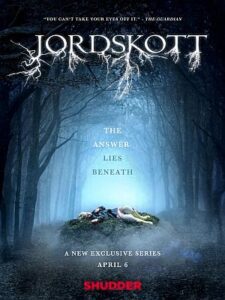.
John Triton (Edward G. Robinson) a stage mentalist working with his fiancé and best friend instead of the manipulated performance begins having spontaneous and accurate psychic visions. After several come to pass precisely as he envisioned, Triton flees, leaving his fiancé and friend without an explanation, hoping his absence will avert her death that he foresaw.
Isolating himself from humanity and surviving by making mail-order tricks, Triton desperately avoids contact with people, unwilling to foresee more tragedy. However, when circumstances bring him into the orbit of his former fiancé’s daughter (Gail Russell) and his visions again spell doom, Triton struggles to prevent the future that now seems predestined.
Night Has a Thousand Eyes is usually categorized as a film noir, but the paranormal aspects make this a difficult movie to place definitively into any single genre. Where noir is often propelled by human weaknesses such as lust or greed, Eyes finds its motivation in Triton’s deep desire to not be the herald of disaster. The seemingly doomed nature of his vision, presenting what appears to be a hard, unalterable future, gives this film a touch of horror. Triton is a tragic character and, like all really good tragic characters, he is very sympathetic. He never sought the power that came to define his life. He never understood it and wanted nothing more than to be rid of it. Fate commandeered his life leaving him as helpless as a leaf blown by a wind. Robinson gives a fine nuanced performance, and he is the heart of this film. had he been unable to exude the required pathos none of it would have worked.
When I began watching Night has a Thousand Eyes, even though it is not a terribly long movie, I expected to watch only a portion before going to bed, but instead it sucked me in, and I completed the movie in a single sitting. It is well worth the watch.
Night has a Thousand Eyes is currently streaming on the Criterion Channel.






